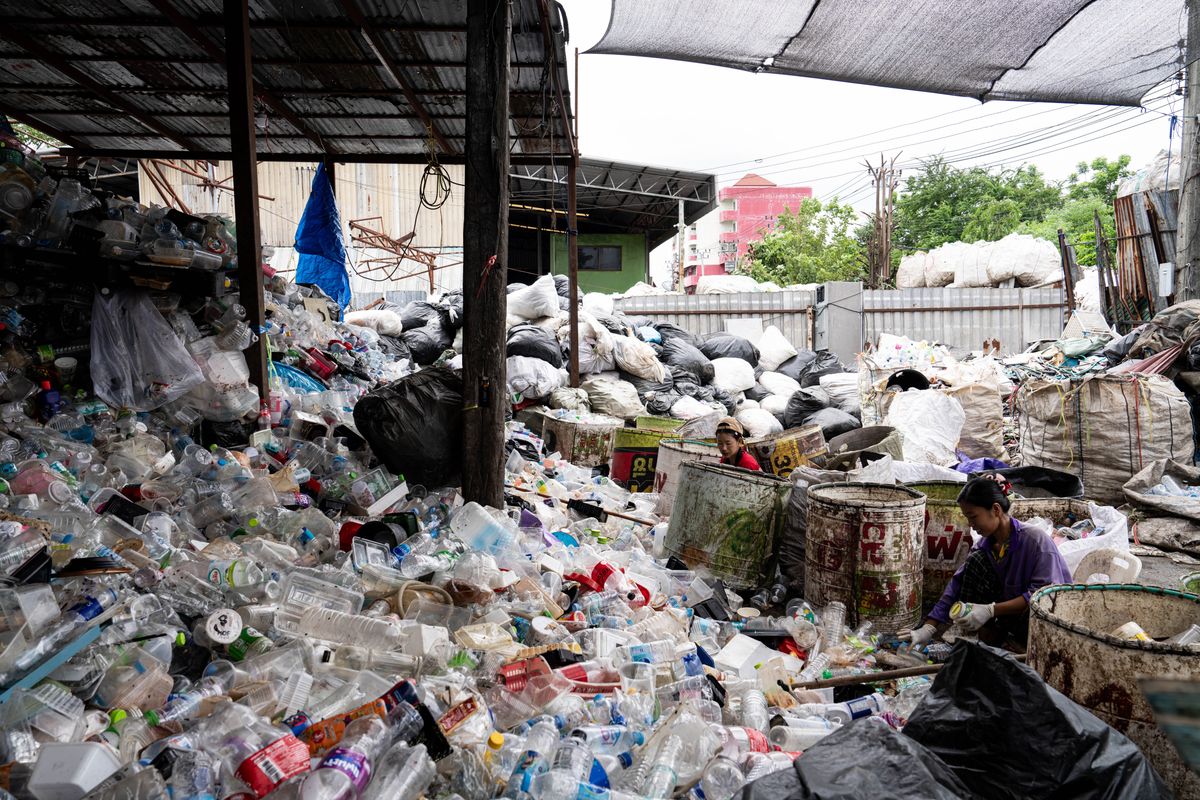The US has thrown its support behind the UN Plastics Agreement, a global treaty to cap global plastic production and create a target list of plastics to be eliminated. Previously, the US, the world’s largest producer of plastic waste, only supported recycling and reuse initiatives.
A 2022 OECD report estimates that global plastic waste will triple by 2060, from 353 million tons in 2019 to 1,014 in 2060. The full scope of the treaty is still being decided, with governments meeting in Bangkok on Saturday to decide which plastics to phase out, and how stringent the treaty’s production cap will be.
The shift aligns the US with the EU, South Korea, and Canada, and away from China and Saudi Arabia. Developing countries in Asia and Africa, where large quantities of plastic waste often end up, vocally support the treaty.
American support is fueled by science showing that plastic is detrimental to human health, particularly “forever chemicals,” which build up in the environment and the human body. The US petrochemicals industry’s trade group said that the Biden administration’s support “signaled it is willing to betray US manufacturing.”
But the future of US support likely depends on the winner of November’s US election. The final round of negotiations is set for two weeks after the presidential election, and while Kamala Harris would likely support it, Donald Trump has vowed to dismantle the Biden administration’s environmental initiatives, especially if they come at the cost of American industry.

















